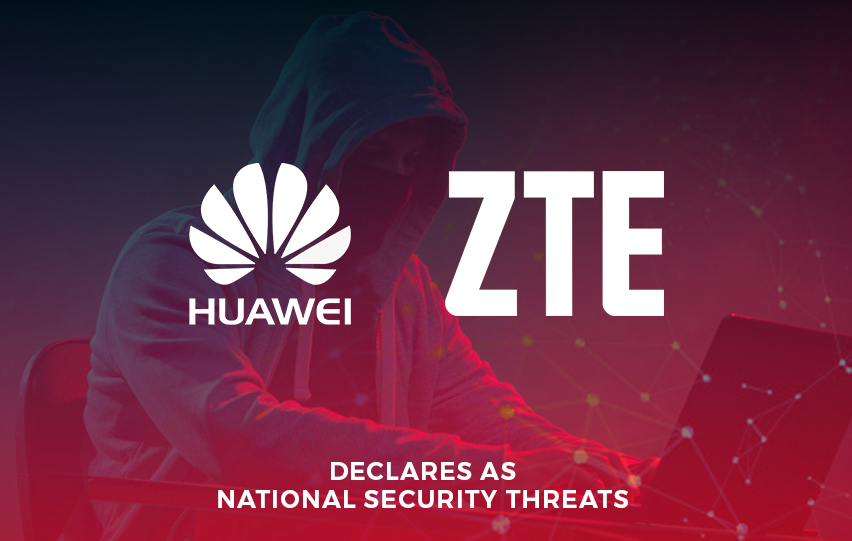On Tuesday, June 30, The US Federal Communications Commission (FCC) formally declared Chinese telecom giants Huawei and ZTE as national security threats to the U.S. The move will officially bar telecoms companies from using billions of federal subsidies to purchase equipment from the Chinese firms.
“With today’s Orders, and based on the overwhelming weight of evidence, the Bureau has designated Huawei and ZTE as national security risks to America’s communications networks — and to our 5G future,” wrote FCC Chairman Ajit Pai in a statement.
“Both companies have close ties to the Chinese Communist Party and China’s military apparatus, and both companies are broadly subject to Chinese law obligating them to cooperate with the country’s intelligence services.”

In November last year, the Commission voted unanimously to ban telecoms from using federal funds to buy equipment from companies that have been deemed as national security threats. At the time, both Huawei and ZTE were “initially designated” as security threats. The initiative was later signed by US President Donald Trump in March 2020, and the final order went into effect on Tuesday.
Every year, FCC, through its Universal Service Fund, provides over $8.5 billion in subsidies to assist telecommunications companies in providing adequate broadband to rural Americans. With the recent announcement, many small rural carriers may no longer tap on the said funds to buy or maintain equipment produced by the Chinese tech firms.
The latest move comes as part of a campaign against Chinese-linked telecom companies due to concerns over espionage and national security.
In a separate statement, FCC commissioner Geoffrey Starks said that while declaring the companies as threats is a start, there is still “much more to do.”
“The Commission has taken important steps toward identifying the problematic equipment in our systems, but there is much more to do,” he commented. “Funding is the missing piece. Congress recognized in the Secure and Trusted Communications Networks Act that many carriers will need support to transition away from untrustworthy equipment, but it still has not appropriated funding for replacements.”
To date, Huawei and ZTE have not provided any response to the latest order yet. However, back in March, when Pres. Trump signed the initiative, Huawei said they are set to fight the USF ban in court.
"Banning a company like Huawei, just because we started in China -- this does not solve cybersecurity challenges," commented Dr. Song Liuping at the time. He is Huawei's chief legal officer.
















